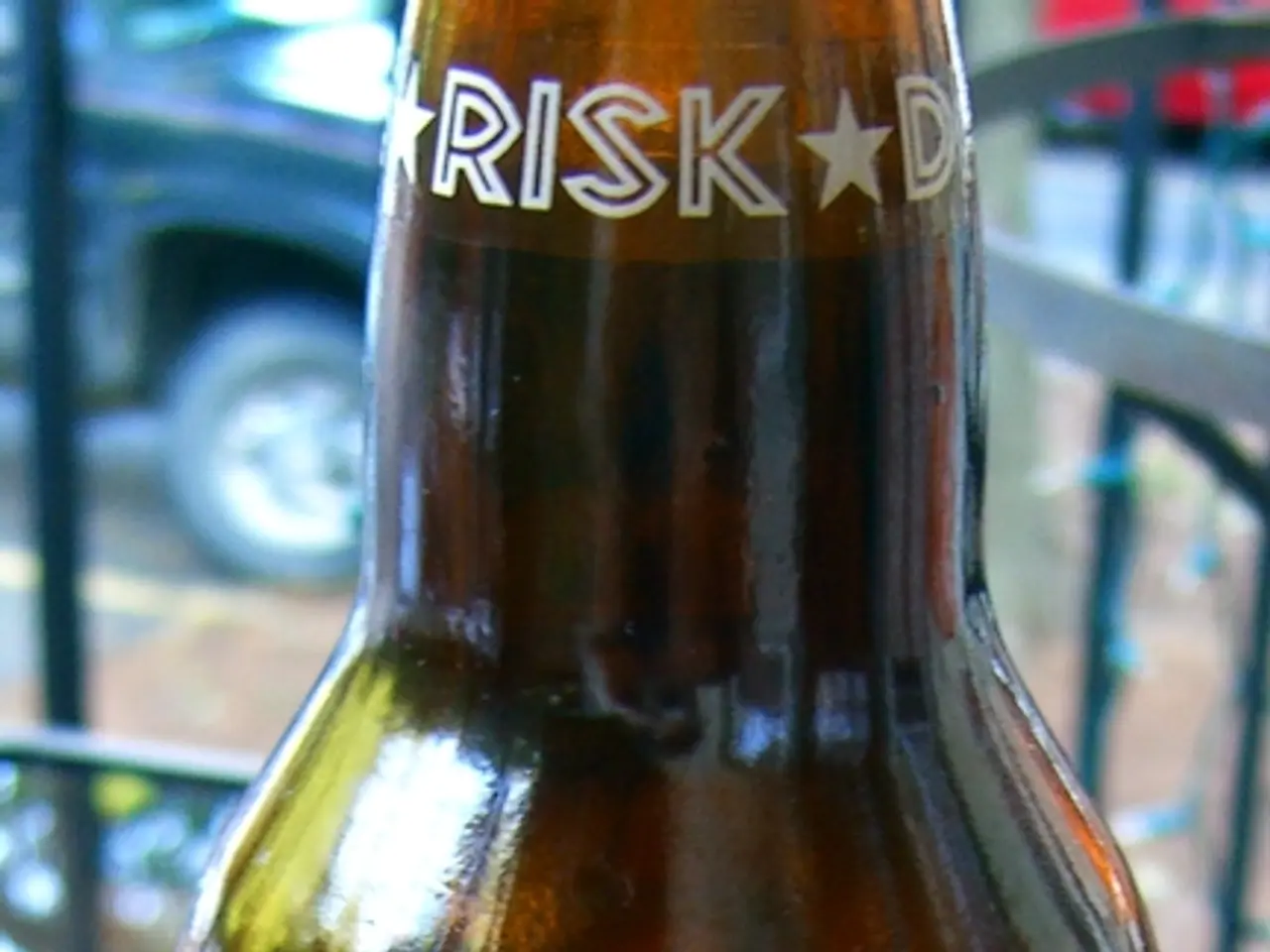Severe Heat Wave Issues Alcohol Consumption Advisory Across 18 U.S. States
The National Weather Service (NWS) has issued a heat warning for 18 states this week, as a heat dome forms over central states, causing high temperatures and preventing cloud formation. This prolonged and intense heat wave, expected to last around a week, has prompted the NWS to urge citizens to take steps to avoid harming their health as temperatures become extreme in some states, starting from Monday.
The CDC, in collaboration with the NWS, has issued recommendations for citizens on how to behave during extreme heat. One of the key recommendations is to avoid drinking alcohol, as it increases dehydration and reduces the body's ability to regulate temperature. This, in turn, increases the risk of heat-related illnesses such as heat exhaustion and heat stroke.
Alcohol causes fluid loss by promoting dehydration, which is already a critical risk during extreme heat conditions. It also impairs the body's thermoregulation, making it harder to stay cool and maintain a safe internal temperature. Heat-related illnesses can escalate more quickly with alcohol intake, especially in vulnerable populations like seniors, young children, and those with chronic health issues.
The CDC advises avoiding alcoholic (and sugary) beverages in heatwaves because they contribute to fluid loss and worsen symptoms ranging from muscle cramps to dizziness or nausea. The NWS also warns that caffeine should be avoided for similar reasons, urging people instead to drink water or electrolyte-rich fluids.
The NWS's warning is not a return to the days of Prohibition and bootleggers, but a concern for public health in the era of global warming. Many commenters online have taken the CDC's recommendation with humor, claiming they would drink to cope with the heat, but it is important to remember the seriousness of the situation.
Eight states received a "red level" warning - Extreme Heat Warning - including Arkansas, Illinois, Kansas, Kentucky, Oklahoma, Mississippi, Missouri, and Tennessee. The warning is due to a heat wave affecting almost the entire continent. The heat dome acts like a lid, preventing heat from escaping and blocking cloud formation, leading to persistently high temperatures and minimal relief from the heat. The heat index in the eight stated named above has reached triple-digit values this week, with some areas of Mississippi potentially reaching 115 degrees.
It is important to remember that extreme heat can cause significant health problems, especially among children, seniors, and people with chronic diseases. Each year, extreme heat causes over 700 deaths across the country. By following the NWS and CDC's advice, we can help reduce the number of heat-related illnesses and deaths this summer.
[1] Centers for Disease Control and Prevention. (2021). Extreme heat: Stay cool. Retrieved from https://www.cdc.gov/disasters/extremeheat/heat-safety-tips.html [2] National Weather Service. (2021). Heat Safety Awareness Week. Retrieved from https://www.weather.gov/safety/heat [3] National Weather Service. (2021). Heat Safety Awareness Week: Stay hydrated. Retrieved from https://www.weather.gov/safety/heat-dehydration
[1] Amidst the ongoing climate change and its consequences like global warming, the Centers for Disease Control and Prevention (CDC) is advising people to pay heed to environmental-science research, focusing particularly on the impact of extreme heat on health-and-wellness.
[2] Thus, it is imperative to follow the NWS's recommendations for staying safe during a heatwave, such as avoiding alcoholic beverages and caffeine, as they can exacerbate dehydration and impair heat regulation, leading to serious heat-related illnesses like heat exhaustion and heat stroke. Such illnesses are especially troublesome for vulnerable populations such as children, seniors, and those with chronic health issues.




